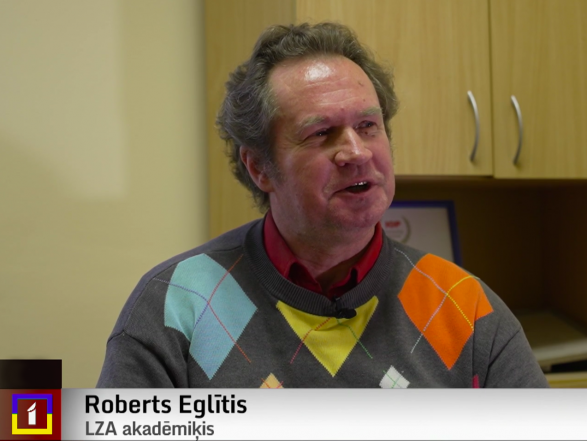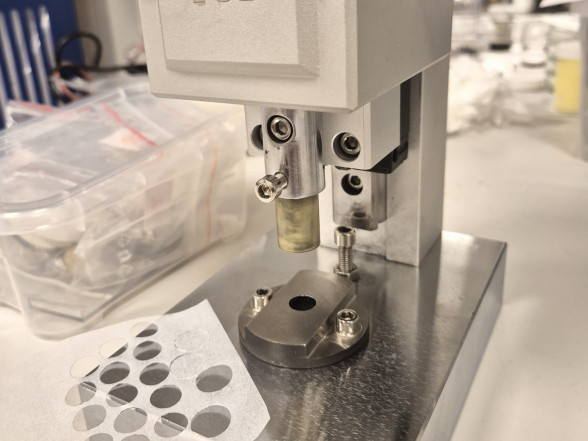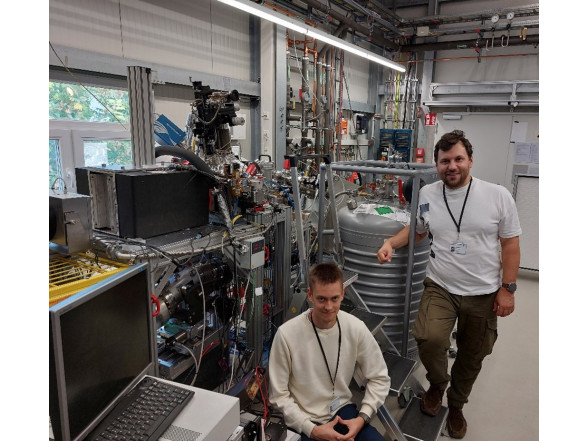On January 21, the morning news show “Rīta Panorāma” (Morning Panorama) of the National Television (LTV1) featured a story about one of the receivers of the Latvian Academy of Sciences (LAS) 2024 Scientific Achievements of the Year Award in Theoretical Science, the leading researcher of the ISSP UL’s Laboratory of Computer Modeling of Electronic Structure of Solids, Dr. phys. Roberts Eglītis.
The TV story explains that five years ago, a significant breakthrough took place in energy innovations when Roberts Eglītis, alongside fellow researchers at the ISSP UL demonstrated the effectiveness of a new type of five-volt battery. This discovery would soon play a crucial role in powering millions of electric vehicles manufactured in China.
Eglītis, an esteemed researcher at the ISSP UL, reflected on his past achievements, stating, "The battery I discovered five years ago, Li2CoMn3O8, is now widely used in Chinese electric cars across the globe. The work we did has found real-world applications."
Fast forward to the present, and Eglītis is once again at the forefront of scientific advancement. His latest research introduces a revolutionary battery material focused not on the cathode, traditionally essential for battery function, but on the anode. This new anode is based on Me-graphene, where the central carbon atom is replaced with aluminum. This advancement paves the way for a new type of battery that is lighter, cheaper, and mechanically stronger.
The research project titled "Tomorrow’s Energy: Unlocking the Potential of Graphene, Batteries, Superconductivity, and Photocatalysis" has been recognized as one of the most significant achievements in Latvian science over the past year. Ivars Kalviņš, President of the LAS, praised the research, highlighting the mathematical models developed to predict which materials would possess the necessary properties to generate new energy sources.
In addition to innovations in battery technology, Latvian scientists are proposing new surface and interface structures for perovskite materials. They have also made strides in exploring a new material known as graphdiyne. Such discoveries hold the potential to simplify and reduce the cost of hydrogen production, which could be vital in the context of global warming.
Eglītis emphasized the significance of this emerging material as a crucial photocatalyst, essential for hydrogen production that also aids in reducing CO2 emissions. He noted, "By improving the photocatalyst, we can more easily separate hydrogen from water. Hydrogen has tremendous industrial applications. Hydrogen-powered trolleybuses and cars are already operating on the streets of Riga, representing a massive energy resource."
Moreover, the group has developed theoretical models capable of forecasting materials suitable for solar energy technologies. This research collaboration with Jilin University in China has resulted in 13 published articles in prestigious scientific journals, solidifying their contributions to the field.
As Roberts Eglītis continues to explore the frontiers of energy research, his work not only positions Latvia as a notable player in global scientific advancements but also opens doors to a more sustainable future powered by innovative energy solutions.
The full story and video in Latvian.
For his work on the new five-volt battery and research cycle "Theoretical predictions of new materials for energy storage and harvesting," Dr. Eglītis has also received the Baltic Assembly Prize for Science in 2020.



